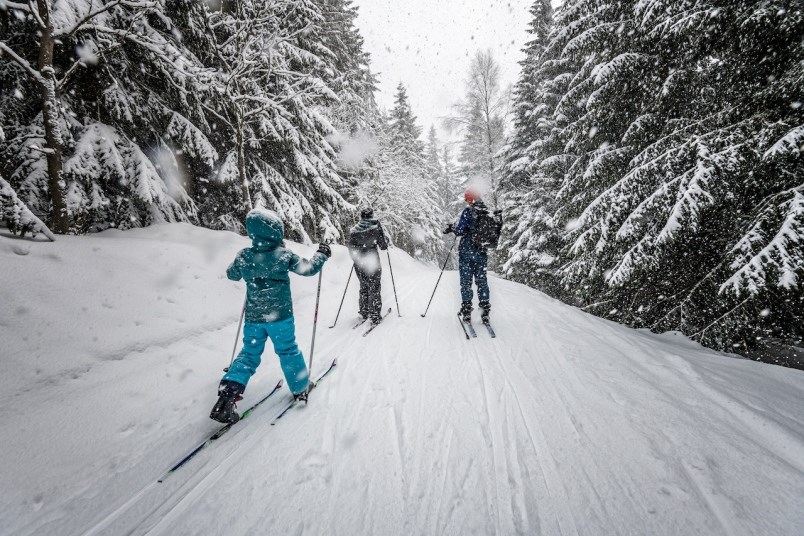It took a single weekend of participation in the newly launched Indigenous Women Outdoors (IWO) backcountry mentorship program to get April Newman to reflect on some of her past experiences.
Newman, who has "moderate" backcountry experience, had some epiphanies about past hikes, while taking an Avalanche Safety Training Level 1 course in the Callaghan Valley earlier this month.
"We'd get slightly lost but we'd find our way back," she recalled of a low-level hike on the Petgill Trail.
"Thinking back, 'Oh my gosh, that could have really gone wrong. Did we have the right resources? Would we have been prepared if we got stuck?'"
Newman, who is Squamish Nation, was one of six women selected to be part of the program, founded by another Nation member, Myia Antone. Half of the participants originated from Squamish or Lil'wat nations and the remaining three come from elsewhere, but currently reside in the Sea to Sky.
Newman said she learned plenty about proper trip planning, and looks forward to everything else she'll pick up in the year-long program.
"We're making sure that before we even go, we take all the right steps and are making all the right decisions," she said.
Antone started the program to help facilitate Indigenous women's recreation in the backcountry and is aware of how imperative the right supports are, noting that several participants are "brand new" to the backcountry.
Encouraging Squamish Nation women to get out on their territory
"I really just wanted to watch more of my own women, more of our Squamish Nation women, to get out on our territory," she said. "I, myself, am new to ski touring and I understand how important mentorship is, especially when we get outside."
While going out and achieving impressive accomplishments on the land is a driver, it's not the only reason for the program. Antone highlights that just being out there is an important point.
"Our people are all going out in the mountains and we're still practising our cultures and speaking our languages, but in terms of skiing and snowboarding, we definitely aren't represented in the bigger outdoor community," she said. "That means that our understanding and our connection to land isn't then shared with the outdoor community.
"It's really about getting on the land with each other and reoccupying these spaces that have been taken away from us."
The mentorship program, co-led by Lil'wat's Sandy Ward, will see participants take place in one to three workshops per month, as well as regular days in the backcountry to go apply that knowledge.
Next year, the hope is that this year's pupils become the mentors.
"We would love to have the support for them to be part of the program in the Sea to Sky area next year, but also recognize that folks go back to their own communities or move," she said. "As long as they're sharing what they were taught, that's the big piece that IWO does."
Applicants were judged based on practical factors such as ability, but also some personality considerations as well, according to Antone.
"[There's] their desire to learn about other Indigenous cultures and share their own culture with us," she said.
Antone previously started a successful hiking program, which inspired her to start a non-profit and branch out into a wider variety of activities.
A wider variety of activities is coming...
Future topics range from snow science to backcountry cooking and nutrition, route finding and navigation, Antone said.
In addition to the mentorship program, IWO is also running separate snowshoeing programs with Melissa Arnott as the co-lead. The group is also eying summer programming including mountain biking clinics, rope climbing, and possibly a hiking mentorship with the hope to help participants achieve hiking or guiding certifications.
Newman is eager to pass along her knowledge, not only in future years of the program but also in her own group, as she co-founded the Wild Rose Club for girls aged 11 to 13. The group currently does some smaller hikes in provincial parks, but could start to explore a little more once Newman has achieved certification.
Newman's participation has also sparked an interest in search and rescue.
Newman, a weightlifter and personal trainer, said it hasn't been common to see other Indigenous women in the gym, so she's been heartened to join others like her in the backcountry.
"It's more hunting and gathering and doing it in a traditional sense," she said. "[We're] doing it now and see how many women are encouraged and empowered by seeing other women, other Indigenous women, doing the same thing and having the same interest and creating that connection."



